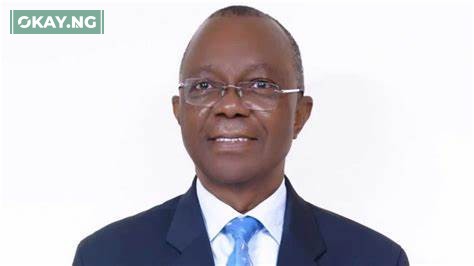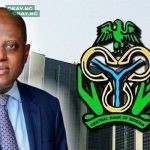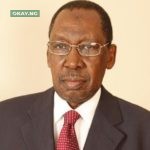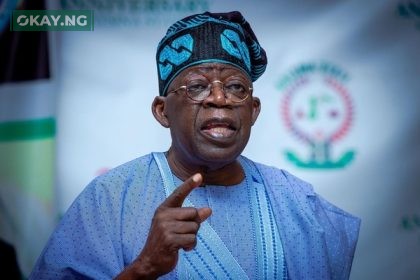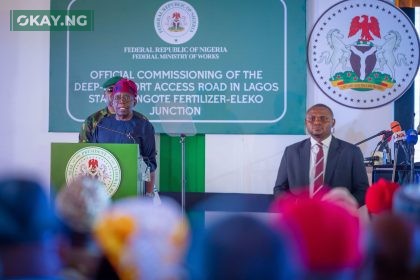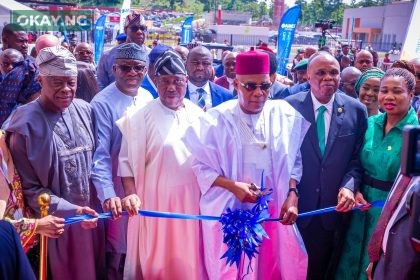The feasibility of Nigeria’s ambitious capital expenditure plans for the 2025 budget has come under intense scrutiny, with the Lagos Chamber of Commerce and Industry (LCCI) issuing a stark warning that the nation’s current fiscal framework is ill-equipped to finance it.
At a press briefing held in Lagos, LCCI President Gabriel Idahosa articulated the chamber’s deep-seated concerns regarding the state of the Nigerian economy. His analysis painted a concerning picture where the Federal Government’s capital spending appears to be precariously unfunded.
“The chamber notes that the budget size at N54.99tn, though large in Naira terms, is relatively smaller in dollar value considering the exchange rate depreciation,” Idahosa stated, highlighting the impact of currency devaluation on the budget’s real value.
The core of the LCCI’s apprehension lies in the stark reality that the combined expenditure for servicing the nation’s burgeoning debt and meeting recurrent obligations eclipses the projected government revenues. “The chamber is worried about the feasibility of capital spending, given that the sum of debt service and recurrent expenditure is greater than the revenue projections, implying that capital spending is left without revenue for implementation,” Idahosa emphasized.
Delving into the budgetary specifics, Idahosa pointed out that while the N54.99tn budget figure seems substantial, its dollar equivalent has diminished due to the naira’s depreciation. He further broke down the allocations, revealing that a significant N14.317tn is earmarked for debt servicing, alongside N13.64tn allocated for recurrent expenditure, leaving N23.96tn for capital projects, all within a fiscal deficit of N13.08tn.
The LCCI president cautioned that the escalating costs associated with debt servicing and recurrent expenditure pose a significant threat to Nigeria’s developmental aspirations. To mitigate this risk, he urged a paradigm shift in the government’s approach, advocating for the development of “a model to attract private investment in strategic infrastructural assets to improve the country’s competitiveness.” This call underscores the necessity of leveraging private sector capital to bridge the funding gap for critical infrastructure projects.
Furthermore, Idahosa stressed the critical need for fiscal prudence, asserting that “government borrowings be project-tied,” ensuring that borrowed funds are directly channeled towards productive ventures that can stimulate economic growth and generate future revenue streams.
Read Also: Kenya Eyes Slimmer Budget Deficit, Increased Spending in 2025/26
The Chamber also drew attention to Nigeria’s escalating debt burden, noting the alarming 48.58 per cent surge in total public debt to N144.67tn by December 2024, a significant leap from the N97.34tn recorded in the preceding year. This figure is projected to exceed N157tn by the close of 2025, factoring in the government’s planned N13tn borrowing to finance the budget deficit.
“The Chamber notes improvement in the government’s fiscal situation; however, it is worried about the government’s new borrowings, particularly when such borrowings are not for productive investments,” Idahosa cautioned, emphasizing the importance of the quality and purpose of borrowing.
In a bid to alleviate the debt burden, the LCCI implored the government to “revisit its debt management strategy to explore cheaper financing options by leveraging national assets more efficiently.” This suggests a need to explore innovative financial instruments and asset monetization strategies to reduce reliance on costly borrowing.
Turning to revenue generation, the chamber voiced its support for ongoing tax reforms aimed at improving efficiency. However, it cautioned against the implementation of measures that could impose further hardship on citizens. “We urge the government to hasten its tax reforms to ensure a more efficient tax system without pain to the citizens and sustainably improve the country’s revenue,” Idahosa advised.
Ultimately, the LCCI called for a “comprehensive overhaul of the country’s fiscal approach,” recommending that the government prioritize strengthening policy consistency, actively attract private sector participation in infrastructure development, and cultivate investor confidence to foster sustainable economic growth.
The Lagos Chamber of Commerce and Industry affirmed its commitment to continued engagement with government agencies and relevant stakeholders, advocating for actionable reforms that will create a conducive environment for the private sector to thrive and contribute meaningfully to national development. The coming months will be crucial in observing how the government addresses these critical concerns and navigates the complex fiscal landscape to ensure the successful implementation of the 2025 budget and the realization of Nigeria’s economic potential.


